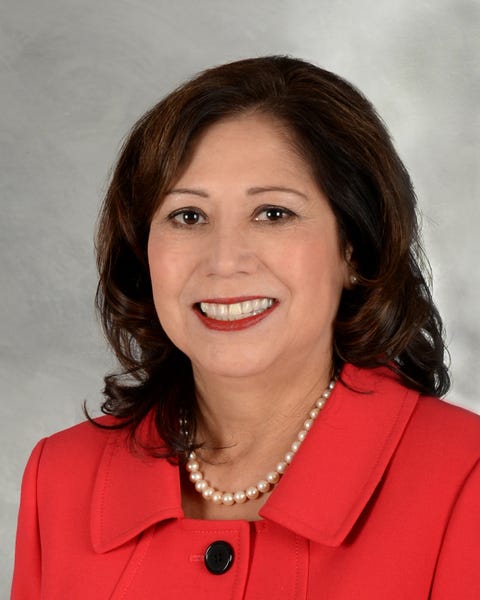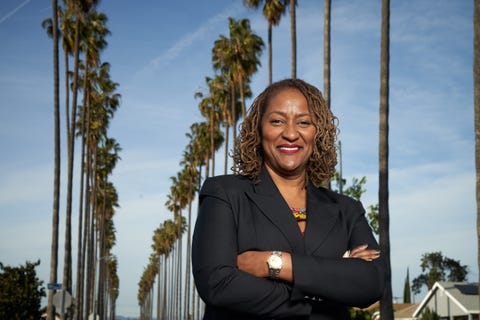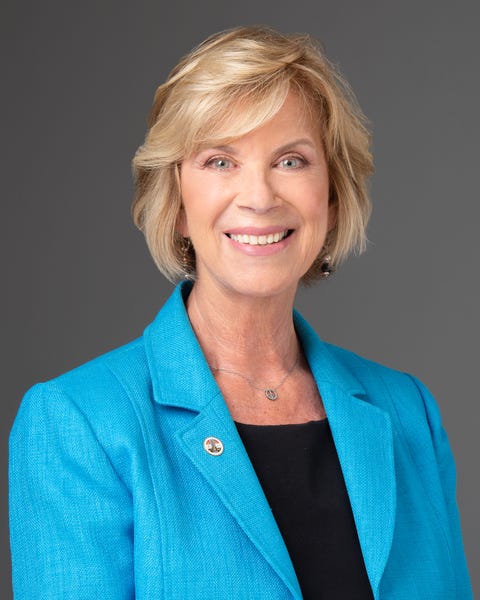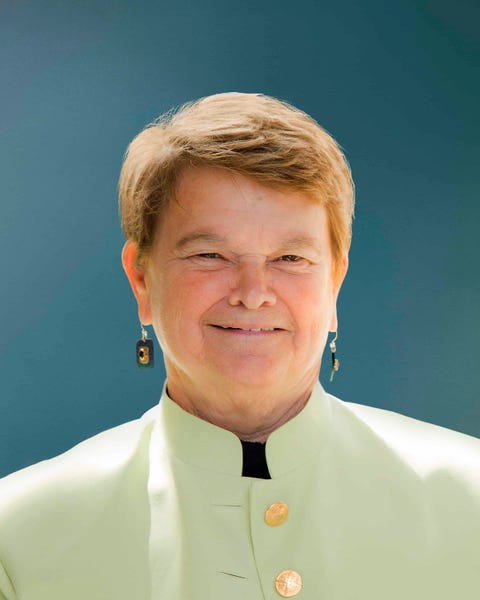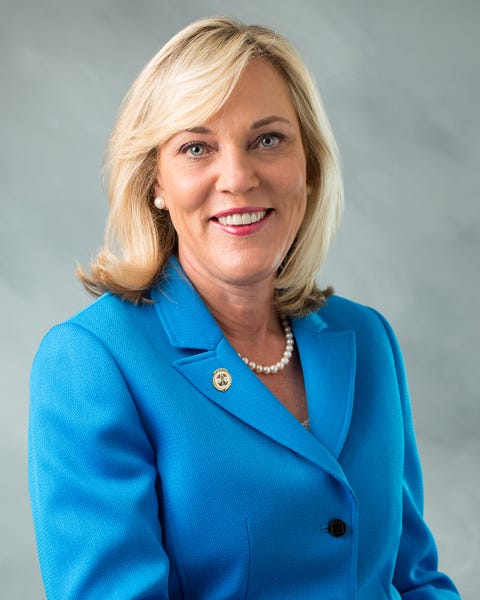For years, the Los Angeles County Board of Supervisors was known as the “five little kings,” given the $35 billion budget the board wields and, of course, the fact that they were all men. Just five supervisors wield power over the nation’s most populous county, which more than 10 million residents—or one-quarter of the state’s population—call home. It also makes LA County the largest non-state level government entity in the country, making the policies it implements a test case for other major cities around the U.S. and the world. Although the board is more than 150 years old, the first woman supervisor wasn’t elected until 1991 and the board was male-dominated until 2017. Now, for the first time in its history, all five supervisors are women after Holly J. Mitchell joined Hilda Solis, Sheila Kuehl, Kathyrn Barger, and Janice Hahn.
“It’s definitely a new era for LA County,” Supervisor Hilda Solis told ELLE.com. “This is history-making.”
Each of the supervisors boasts an impressive political resume. Solis was the secretary of Labor under President Obama; Kuehl was the the first openly gay person elected to the California legislature; Barger spent decades working for the Board of Supervisors; Janice Hahn grew up in a political family and served in the U.S. House of Representatives, and before she was elected, Mitchell was a state senator and chair of the state’s Budget Committee.
Barger praised Mitchell’s work as a progressive policymaker, highlighting her fights for criminal justice reform and childcare advocacy for underserved communities. “She’s got a real fire in her belly to come in, work, and collaborate,” Barger said.
The implications of what happens politically in Los Angeles County are huge for the country, given its ranking as the fifth largest economy in the world. “If LA County sneezes, there are tremors, because what happens here is so powerful,” Solis said. With a population and budget bigger than many states’, the county’s policies can create a blueprint for implementation on an even broader scale, especially in a year when it feels like all bets are off.
“2020 has been such a cataclysmic year of change, with so much going on all around us, but also for the board. I think it’s symbolic of the direction they have moved in, in recent months, in terms of really taking on, head-on, many really progressive issues,” Mitchell told ELLE.com.
Activists have always called Los Angeles home and pushed to hold elected officials accountable, but the pandemic, along with the 2020 presidential election, activated voters in a new way. Initiatives like Measure J—which was approved by voters in November and requires the county to budget no less than 10 percent of its revenue to address the disproportionate impact of racial injustice through community investment and alternatives to incarceration—and progressives like urban planner and activist Nithya Raman being elected to LA City Council show how far residents have come in wanting a government that better works for the people it serves.
“The COVID-19 pandemic put a spotlight on what was already there,” Hahn said. “It exacerbated homelessness, poverty, inequality, justice reform—it just showed the cracks that were already there in our society. It made these issues even more visible, and gave us more of an opportunity to solve them and really make some giant leaps toward fixing those things.”
All of those issues are top of mind for the board, with most of the women agreeing that the appeal of the office is “the amount that you can get done. And you can get it done much more quickly,” Kuehl said.
With residents increasingly convinced they can’t rely on Washington to address communities’ needs, Hahn said, “I think more and more people are looking to their local government to solve their problems.”
Still, elected officials have been known to fall short. In September, the board formally ended the county’s cooperation with Immigration and Customs Enforcement, a move LA County Sheriff Alex Villanueva also supported, after intense pressure by activist groups. Last month, after the board voted 3-2 (with Kuehl, Solis, and outgoing supervisor Mark Ridley-Thomas in support; Mitchell was sworn in on Dec. 6) to uphold a reinstated ban on outdoor dining, Kuehl landed in hot water when she was spotted dining outdoors hours after the vote. While she wasn’t violating county rules, the move struck a nerve, and protesters have gathered outside her home to oppose the ban.
The drive to push for more was a deciding factor in Mitchell’s decision to run for the board. “I consider myself an activist policymaker; I decided to run for office out of my frustration in the activist space that I occupied,” she said. “I literally made the decision to run for this office sitting in the budget subcommittee hearing, where the members of this budget subcommittee of the assembly were proposing to cut a billion dollars out of subsidized child care.”
Barger and Mitchell also credited Gloria Molina, the first woman elected (although not the first appointed—that honor goes to Yvonne Brathwaite Burke) to the board for helping pave the way. “I have to tip my hat to Gloria Molina, who was the first, and that’s equally as significant,” Mitchell said. “To be a woman of color and break that glass ceiling? I can only imagine the challenges. She must have been really cracking open that male culture.”
Molina’s legacy will live on when Solis takes over as chair of the board and Mitchell becomes her vice-chair, meaning the two women of color on the board will also be in charge of it—a powerful message to Los Angeles and young, civically-minded women everywhere. Kuehl said the shift in public perception from “‘Oh, [electing all women] is possible’” to “‘this is normal’” is critical.
“The normalization of women on any elected bodies, I think, increases when you see, not just that we’re all women, but the variety of women that we are,” she said.
This content is created and maintained by a third party, and imported onto this page to help users provide their email addresses. You may be able to find more information about this and similar content at piano.io

